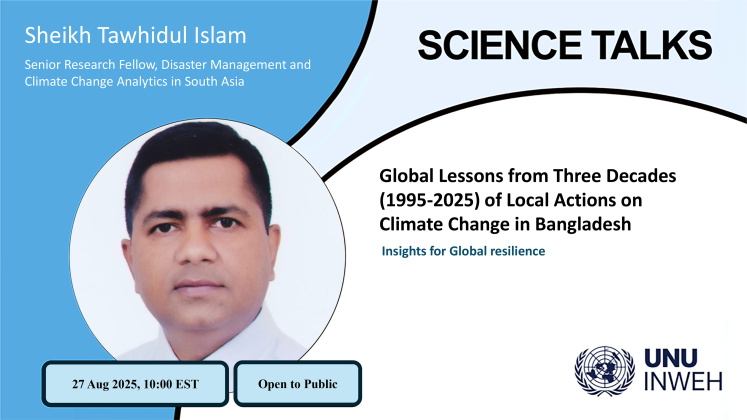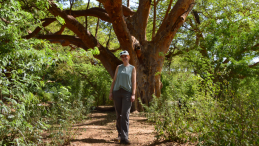Bangladesh’s experience with climate change over the past three decades offers profound lessons for vulnerable regions globally, particularly deltaic and coastal areas. The country faces a complex web of challenges such as rising sea levels, salinity intrusion, cyclones, and erratic rainfall that threaten its densely populated low-lying regions. While national policies like the National Adaptation Plan (NAP, 2023 - 2050) and hundred-year Delta Plan 2100 reflect ambitious adaptation goals, implementation has been hampered by fragmented governance, data deficiencies and a disconnect between scientific research and grassroots realities. Coastal areas, such as the salinity-ravaged southwest, exemplify these struggles - despite projects like embankment improvements and salt-tolerant crop initiatives, top-down approaches often neglect data-driven, at-scale knowledge leading to maladaptive outcomes like unsustainable shrimp farming. Yet, Bangladesh’s journey also reveals successes such as community-led early warning systems and mangrove restoration demonstrating that resilience hinges on integrating advanced technologies (e.g., satellite monitoring, GNSS-R) with participatory decision-making.
In this Science Talk, Sheikh Tawhidul Islam will highlight how these successes and setbacks together illustrate the urgent need for informed, systemic, equity-focused adaptation. Beyond the coast, inland flooding, river erosion, and urban heat stress further illustrate the need for informed, systemic, equity-focused adaptation. Key takeaways for global policymakers include the urgency of bridging data gaps with real-time geospatial tools, adoption of AI (Artificial Intelligence such as machine learning, deep learning algorithms to process non-linear, multi-scale large volume of data) and fostering cross-sectoral collaboration to address cascading climate risks. As Bangladesh navigates its next phase of adaptation, balancing infrastructure - heavy solutions with ecosystem-based approaches, its lessons underscore a universal truth - effective climate action must be as dynamic and interconnected where data-driven knowledge plays useful roles. Bangladesh’s efforts to tackle climate change threats inform that climate resilience hinges on science by leveraging Earth observation data and AI insights. These will help us to understand both the current and future risks better leading to take informed decisions to outpace climate risks.
Register Here
Speaker

Prof. Sheikh Tawhidul Islam
Senior Research Fellow, Disaster Management and Climate Change Analytics in South Asia




